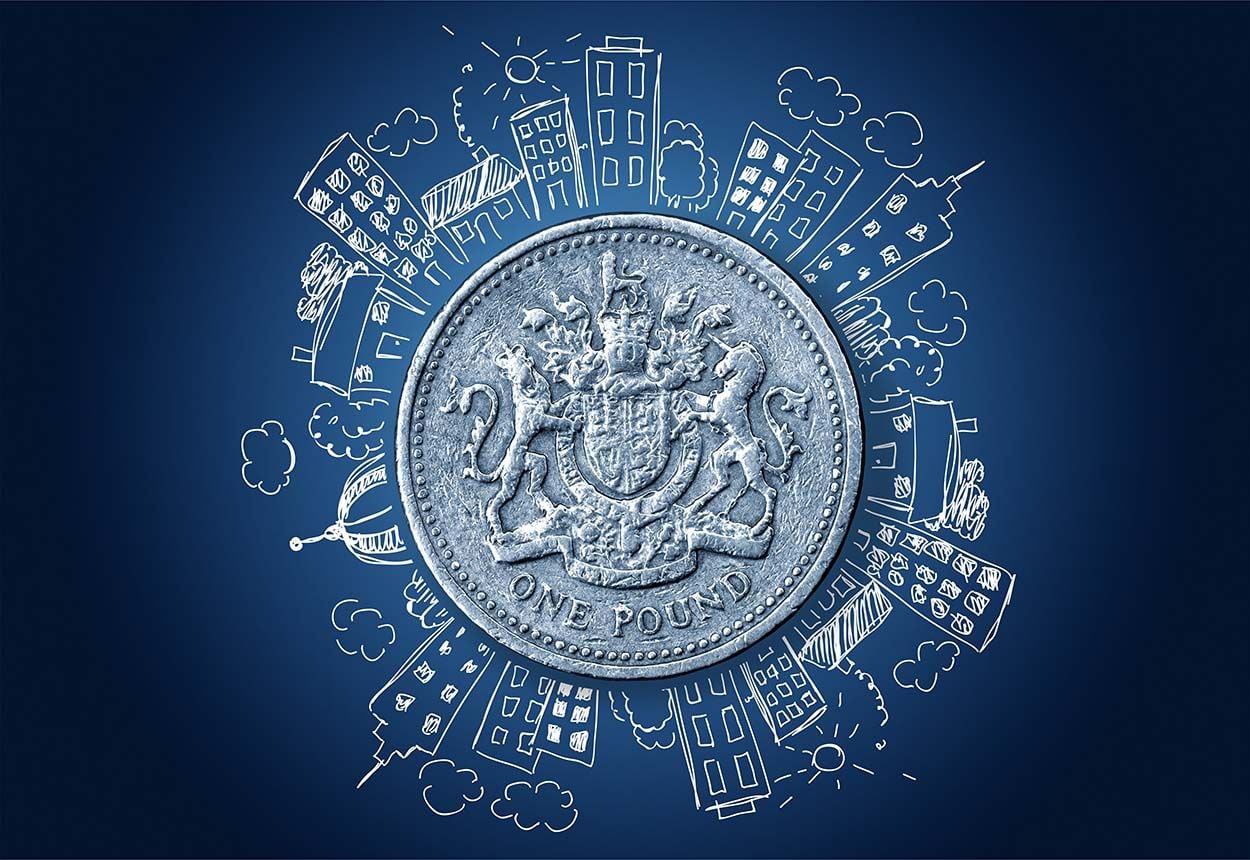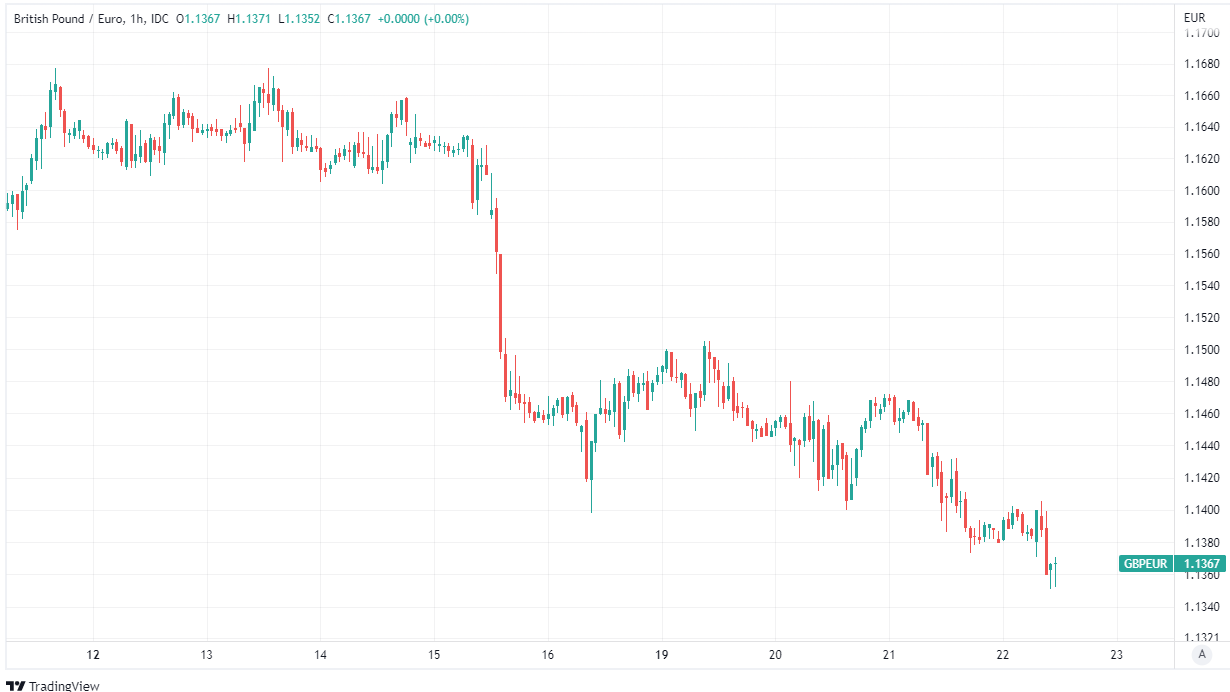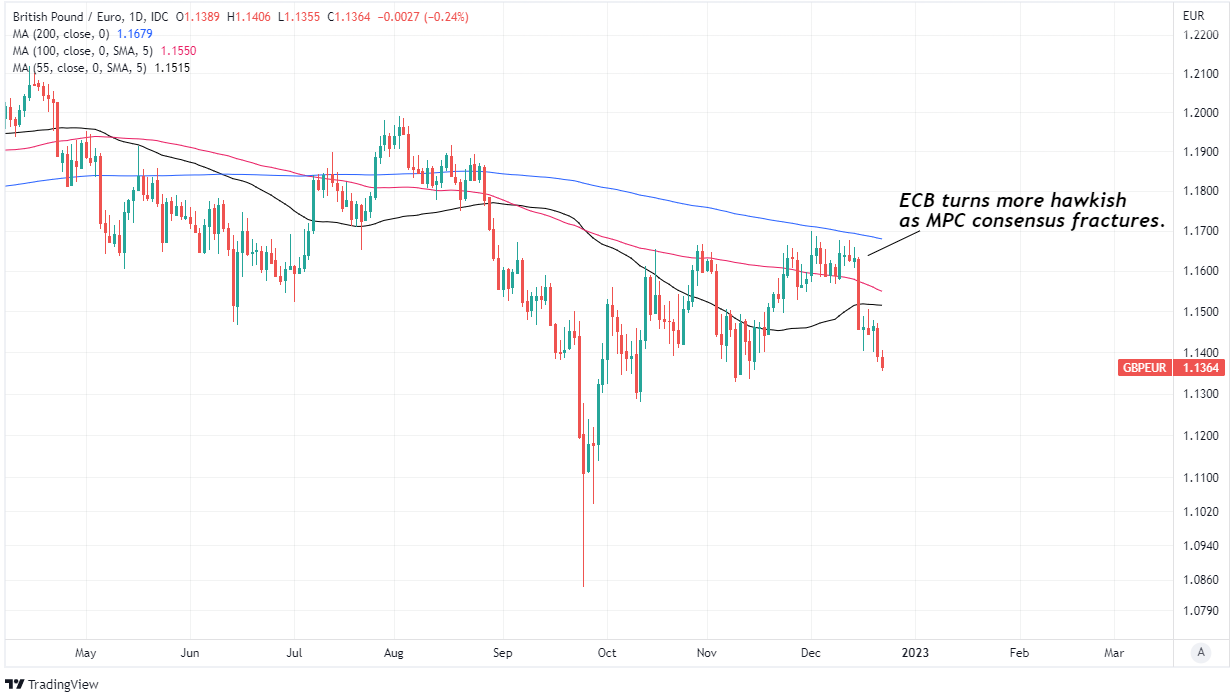Pound Sterling Slips Below 1.14 Against Euro with Further Pressure Seen Ahead
- Written by: James Skinner
"The ECB would clearly like a stronger euro to help out with its battle against inflation" - ING

Image © Adobe Images
The Pound to Euro exchange rate slipped to two-month lows in the penultimate session of the week and some analysts suspect it could be likely to remain suppressed around these kinds of levels over the coming weeks.
Sterling was nursing further widespread losses on Thursday while the single currency was a comparative outperformer with the net effect pushing GBP/EUR beneath 1.14 and to its lowest level since the early days of October.
The Pound had already been an underperformer previously but Thursday's loss followed an Office for National Statistics revision to its earlier estimate of third quarter GDP, which is now thought to have fallen by -0.3%.
"The national accounts confirm that the U.K. was the only G7 economy in which Q3 GDP still was below its pre-Covid level," says Samuel Tombs, chief UK economist at Pantheon Macroeconomics.
 Above: Pound to Euro rate shown at hourly intervals.
Above: Pound to Euro rate shown at hourly intervals.
"The U.K. likely will continue to underperform; we expect Britain to suffer the deepest recession among major advanced economies in 2023, due to the severity of the headwinds from both monetary and fiscal policy," Tombs adds.
The ONS data shows that declines in the real or inflation adjusted value of household spending were the main drivers of the fall in GDP, reflecting increases in selling prices for many items and falling real terms incomes that are expected to remain protagonists in a fortcoming recession.
Bank of England forecasts suggest the downturn could last for up to two years while Pantheon's Tombs projects a -2.5% peak-to-trough fall in GDP and a 2023 decline of -1.5% with each of these also aided by cutbacks in government spending and increases in the Bank of England (BoE) Bank Rate.
"Meanwhile, the investment income deficit likely will increase again, as the partial recovery in the pound weighs on the sterling value of investment income inflows. The resulting large current account deficit means that sterling will remain very sensitive to any changes in risk sentiment," Tombs says.
Thursday's GDP data may have done little to improve market appetite for Sterling but the latest leg down in GBP/EUR dates back to interest rate decisions from the Bank of England (BoE) and European Central Bank (ECB).
 Above: Pound to Euro rate shown at daily intervals.
Above: Pound to Euro rate shown at daily intervals.
"The ECB would clearly like a stronger euro to help out with its battle against inflation and it was telling at last week's ECB press conference that President Christine Lagarde was keen to highlight that the ECB would be tightening longer than the Fed," writes Chris Turner, global head of markets and regional head of research for UK & CEE at ING, in a recent research briefing
"If the ECB is to be successful in getting the euro higher, then the euro will need to rally against those currencies with major weights in the trade-weighted euro index. The biggest weights in this index are the US dollar (16%), the Chinese renminbi (14%) and then the British pound (12%)," he adds.
December's decisions saw the ECB surprise the market in saying that expectations for its interest rate are too low just after the 'hawkish' consensus at the Bank of England (BoE) appeared to fracture with two members of the Monetary Policy Committee voting to leave Bank Rate unchanged.
Turner and colleagues say this and the UK's deteriorating economic fundamentals are likely to leave Sterling most susceptible to any strength or resilience in the single currency with their forecasts indicating that a fall to 1.1235 in the early months of next year.




